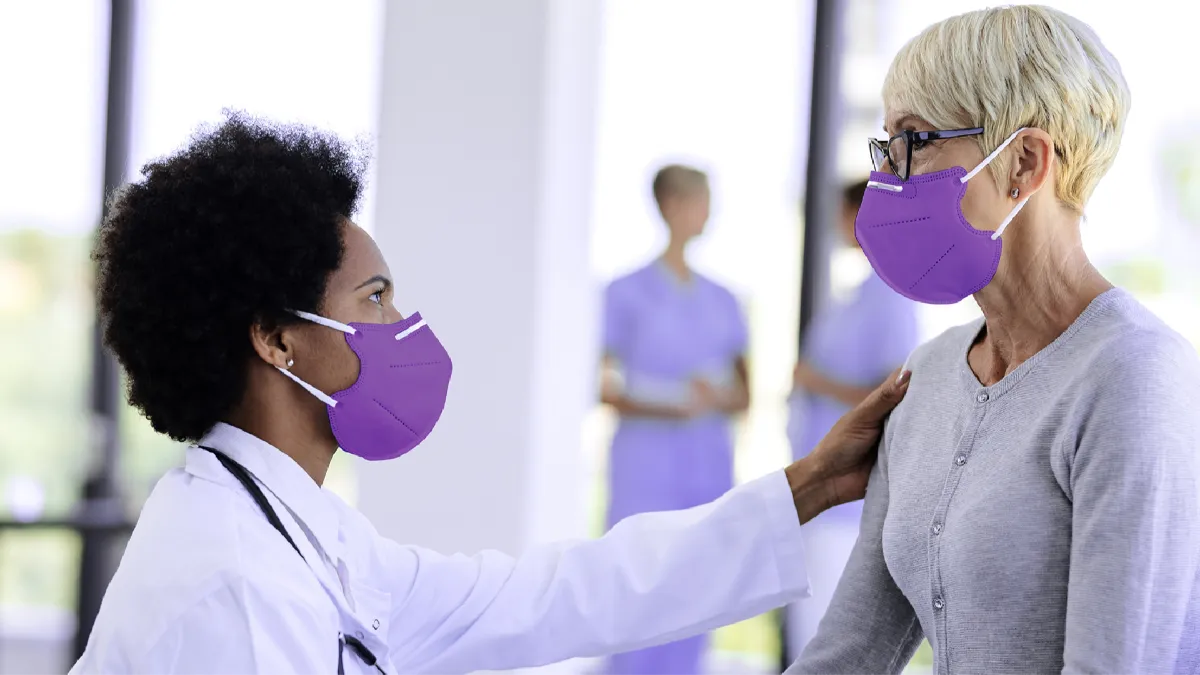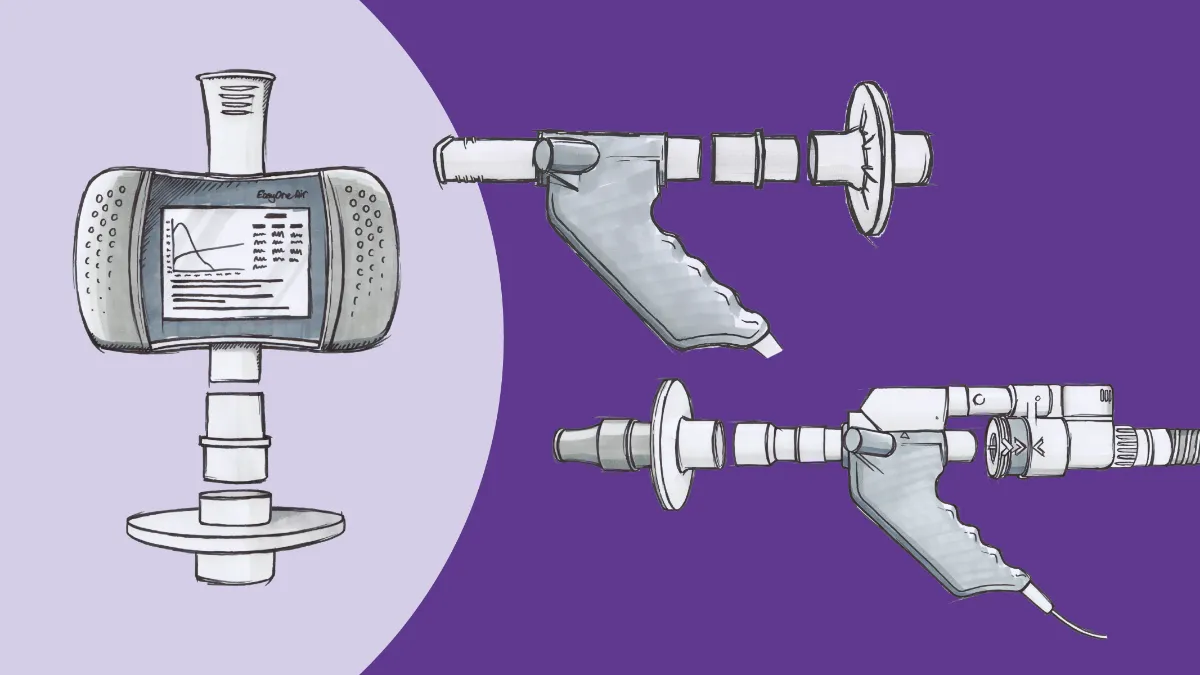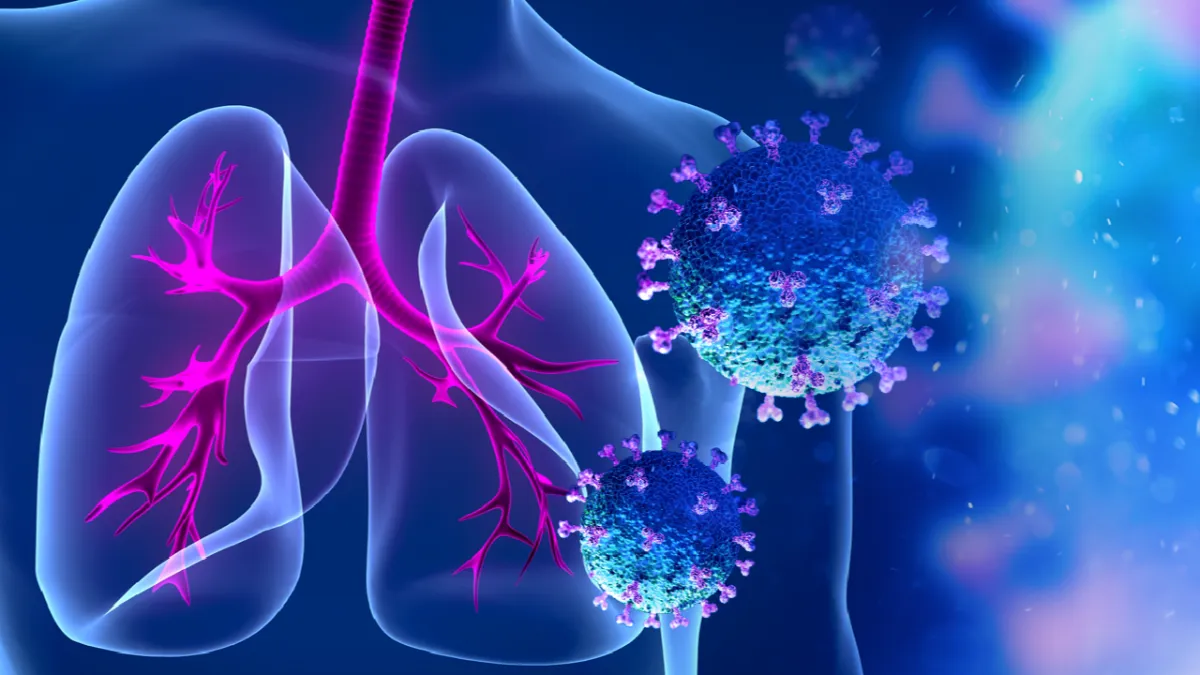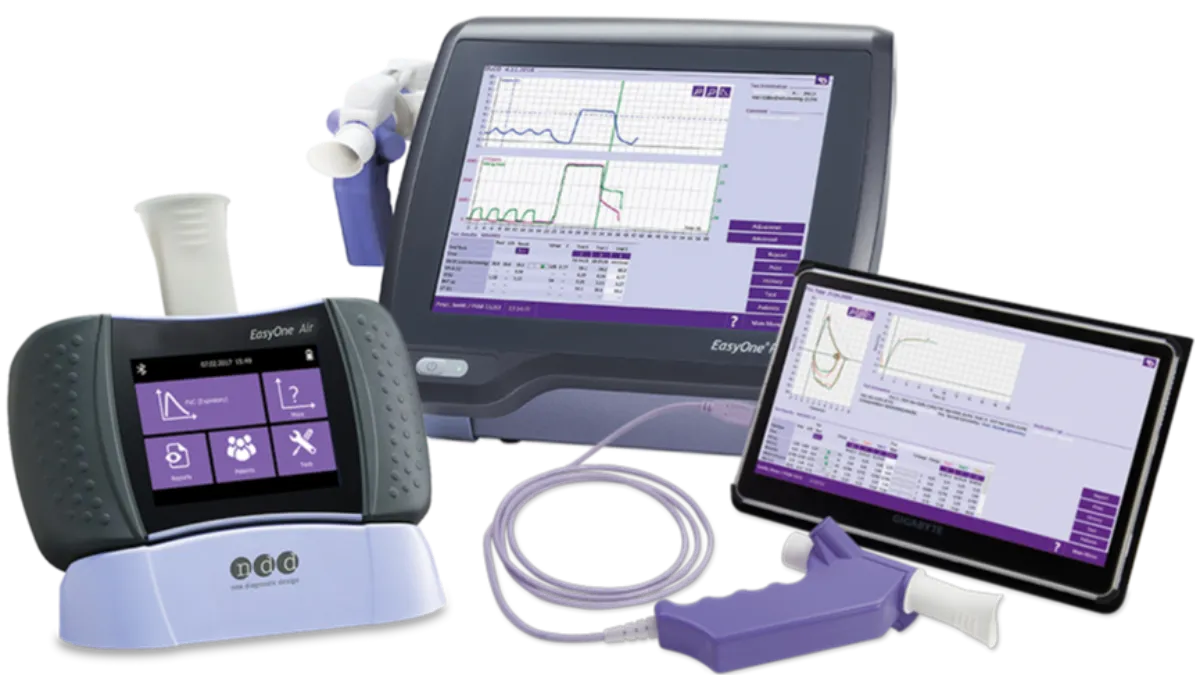Pulmonary function testing in recovered COVID-19 patients

While many patients have fully recovered from COVID-19, some experience long covid with lasting symptoms, including impaired lung function. With COVID-19 still relatively new, more research is needed to analyze further whether COVID-19 causes permanent lung damage, and one crucial step to this is lung function testing.
How does COVID-19 affect the lungs? #
COVID-19 can lead to lung diseases like pneumonia, bronchitis, and acute respiratory distress syndrome (ARDS).
There are three stages of COVID-19’s disease process. The first stage begins in the nose and is the stage when asymptomatic people can spread the virus. The second phase occurs in the bronchi and bronchioles, and as the disease goes deeper into the lungs, the virus infects ciliated cells of the respiratory system. At this time, a more significant immune response occurs, causing an individual to feel sick.
Once the disease progresses to the third phase, it affects alveolar cells, and the patient becomes critically ill and faces an increased risk of fatality from the disease. Alveolar cells are responsible for making and secreting pulmonary surfactant and gas exchange. Initially, losing alveoli function causes hypoxia. But eventually, it may lead to ARDS, a type of lung failure that requires mechanical ventilation.
While some patients recover from being hospitalized with severe COVID-19, many struggle with long-term lung damage.
Long-term lung function loss in post-COVID patients #
A study conducted at an internal medicine practice in Los Angeles showed that post-COVID patients lose functional alveoli and lung parenchyma. The study identified 15 patients diagnosed with COVID-19 within 15 months of the study. These patients did not remain on supplemental oxygen and completed office pulmonary function tests (PFTs) with the EasyOne Pro portable PFT machine. Eight of the 15 patients showed abnormal chest x-ray results.
The study concluded that all patients with abnormal chest x-rays upon presentation showed impaired diffusion capacity within the year of recovery. In addition, the study found that in these patients:
- Four patients lost alveolar volume.
- Three have reduced gas exchange out of proportion to their loss in alveolar volumes.
- Six have reduced FEV1.
- Four have small airway disease.
- Seven of the eight patients with abnormal chest x-rays are obese.
Recovering patients with normal chest x-rays upon presentation also showed impaired lung function.
- Two patients have impaired DLCO.
- Four have decreased FEV1 and FVC.
- Five have small airway disease.
- Six out of the seven patients with normal chest x-rays suffer from obesity.
According to the study, patients with normal and abnormal chest x-rays both lost functional alveoli and lung parenchyma. These results are consistent with autopsy reports showing alveolar-capillary thrombosis, intra-alveolar inflammatory infiltrates, and tracheal submucosal infiltrates. In addition, decreased DLCO in outpatients corresponds with reports of surviving intensive care patients.
It’s clear that research shows declined lung function in post-Covid patients, but further analysis is needed to determine whether COVID causes permanent lung damage.
Pulmonary function testing for recovered COVID-19 patients #
COVID-19 is a disease that attacks the respiratory system, and chest x-rays alone aren’t enough, as the study proves. Since PFTs monitor lung volumes, gas exchange, and airflow, PFT testing is crucial to monitoring the lung function of patients recovering from this disease.
EasyOne Pro for spirometry & DLCO testing #
The EasyOne Pro complete PFT device helps healthcare providers obtain PFT results efficiently. It’s portable, durable, and offers results instantly, allowing any healthcare provider to monitor their patients for post-COVID lung damage long-term.
Regular PFT screenings in recovered COVID-19 patients will determine how long it takes for patients to recover fully or if lung damage could be permanent, allowing clinicians to obtain information and provide the best care for their patients.
Clinical statements above come from these sources:
- https://www.cdc.gov/covid/long-term-effects/
- https://journals.physiology.org/doi/full/10.1152/ajplung.00126.2020
- https://www.hopkinsmedicine.org/health/conditions-and-diseases/coronavirus/what-coronavirus-does-to-the-lungs
- Pulmonary Function Testing in Recovered Covid-19 Patients - S. Copen; Geffen Academy, University of California Los Angeles, Los Angeles, CA, United States.








